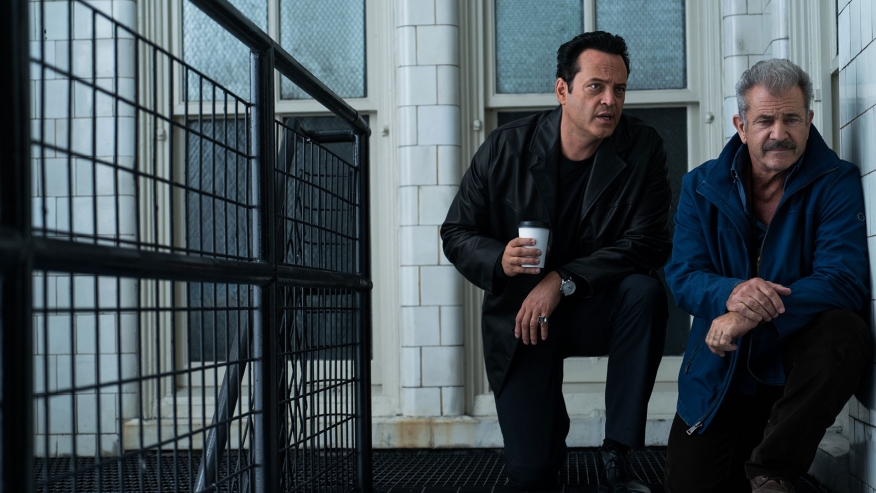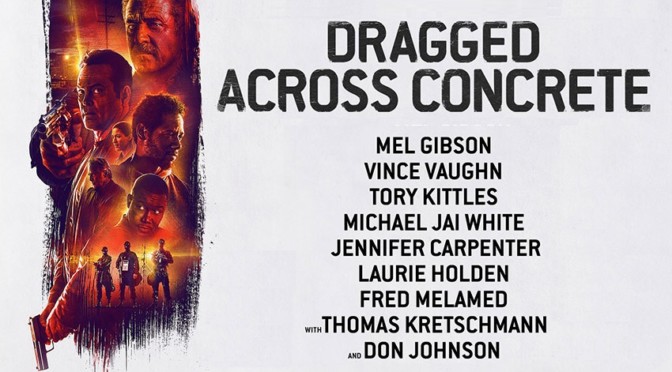With Dragged Across Concrete, S. Craig Zahler (Bone Tomehawk) wades into precarious subject matter. Fortunately, he has the talent to handle it with the gravitas it deserves. The film is split between two storylines. The first centers on two cops, Brett (Mel Gibson; Mad Max) and Anthony (Vince Vaughn; Brawl in Cell Block 99), that are put on administrative leave after a video of them “using too much brass” while arresting a drug dealer surfaces online. The second story follows two friends, Henry (Tory Kittles; Colony) and Biscuit (Michael Jai White; Black Dynamite), as they assist in a bank heist.
This is a movie that takes its time. The film runs nearly 2 hours 40 minutes yet doesn’t feel overlong. Zahler uses the runtime to invest in his characters. Where most directors would show Brett and Anthony on a single stakeout before the climactic action, Zahler chooses to show several. His screenplay exists in this repetition. He knows that it is these routines that allow viewers to understand how characters behave and how they relate to one another. He is also willing to spend significant screentime setting up a character and their motivations only to have them killed 15 minutes later because it give the violence impact. The attention to detail in how these characters live and what motivates them makes every minute engaging and every consequence significant.

For a film about police brutality, it isn’t as gruesome as the title suggests. The violence takes a step down compared to Zahler’s previous work and it’s a smart decision. Unlike his prior two films, this title is about an extremely sensitive topic that is affecting many Americans. There are moments where Brett and Anthony intimidate and rough up their suspects, but they are neither glorified nor condemned. The arrest that causes the police officers to get suspended is not nearly as violent as much of the real-life cell phone footage that circulates online. When they are called in to their chief’s office to discuss the incident, they plead their case. How can an entire career be judged on a 30 second video? Why is it that the impact of the drug dealer – and the impact of his arrest and actions allowed by the information he divulged – not a part of the discussion? Both of these are valid points and are expressed earnestly, although some of the lines appear to be not-so-subtle references to Gibson’s own history with audio recordings made public. In the case presented onscreen, they are questioning a man that is definitively guilty, but the film does not explore the ramifications of using the same level of force on an innocent man which is an important piece of the puzzle that is missing, but not to the detriment of the overall film.
Zahler applies the same attitude to the crimes committed by Henry and Biscuit. They each explain why they are resorting to theft and the film never judges them for it. This incredibly even-handed approach pays off immensely. It allows Zahler to tackle difficult and current subject matter without the flagrant messaging of a Spike Lee movie. If Zahler has any bias, it is towards his characters. They are written and portrayed with deep empathy for their situations and the actions they take given their limited choices. For a filmmaker known for genre films and excessive violence, Zahler has constructed a slow-burn procedural with a genuine compassion for its characters, regardless of their actions.

4/5 stars.
